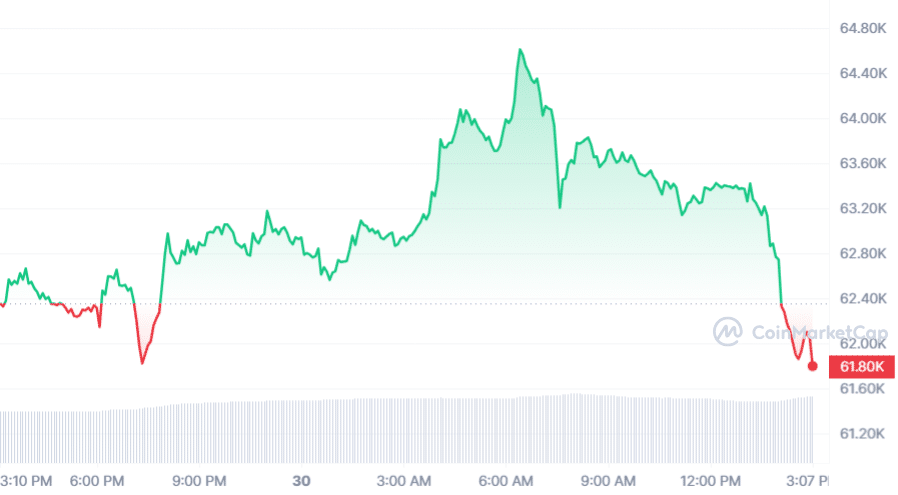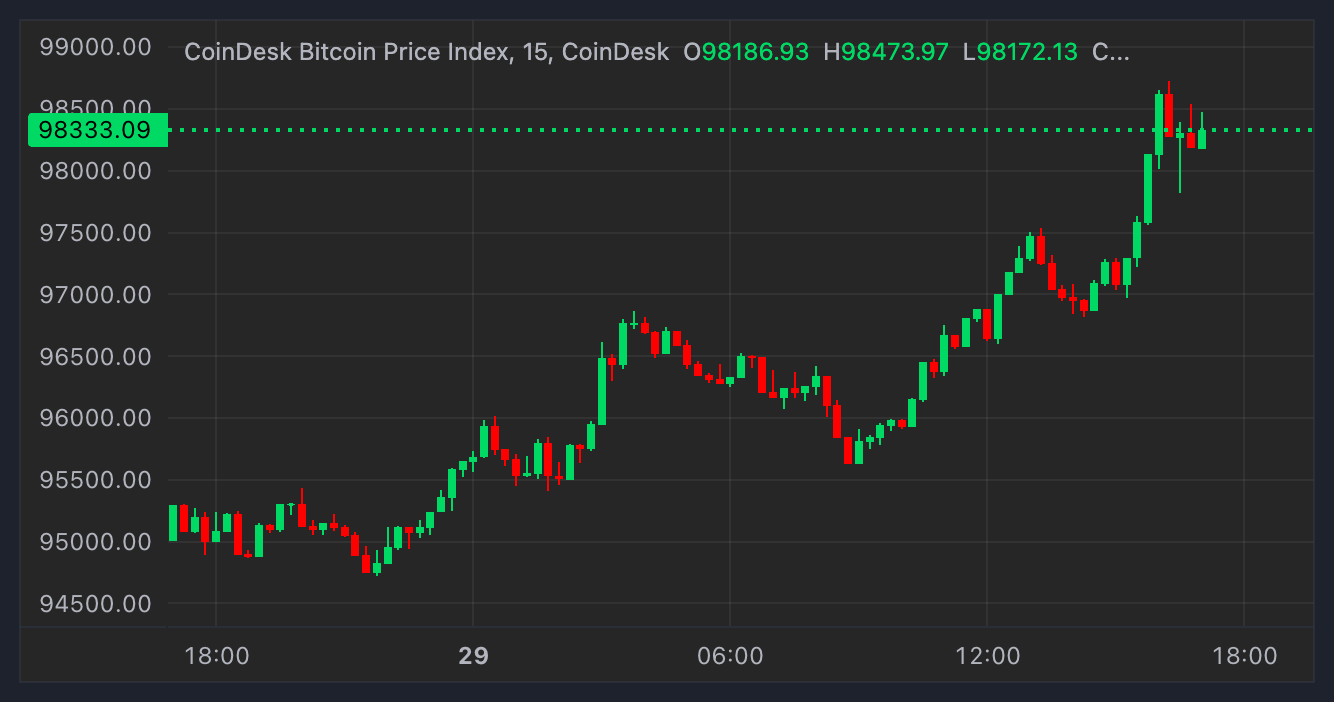ARTICLE AD
Spot crypto exchange-traded funds (ETFs) introduced on the Hong Kong stock exchange have paved the way for a future wave of Chinese investors, according to industry experts.
In an interview with Bloomberg TV, Yimei Li, CEO of China Asset Management, mentioned that the Tuesday launch of the spot Bitcoin and Ether ETFs “opens the door for numerous RMB [Chinese yuan] holders” looking for alternative investments.
China Asset Management is one of three ETF issuers, together with Harvest Global Investments and Bosera Asset Management, that introduced a cryptocurrency product on the Hong Kong Stock Exchange on April 30.
Li told Bloomberg TV that she believed a “new opportunity” for mainland Chinese investors to “participate in this process” will arise in the future.
She emphasized the potential expansion of asset options for domestic investors as market accessibility improves.
Crypto trading is still prohibited in mainland China, and the new ETFs are only available to Hong Kong residents at the time.
Han Tongli, CEO of Harvest Global, mentioned that regulators are closely observing the development of these ETFs to manage potential risks and may consider market expansion based on risk assessments.
In an April 30 post on X, Jan3 CEO and Bitcoin pioneer Samson Mow stated that ETFs in Hong Kong “are going to be big,” with “long-term implications that are massive.”
“There is really nothing else for Chinese investors to put their money into at this time.”
The comments follow a post by Bitcoin environmentalist Daniel Batten, who noted the decline of all three Chinese stock exchanges in 2023 and the ongoing instability in the real estate market.
Per Barron’s report last week, all major Chinese real estate data indicators performed poorly or declined during the first quarter.
Most Chinese ultra-high-net-worth individuals can invest in Hong Kong’s cryptocurrency ETFs, he said.
At a press conference on April 29, Zhu Haokang from China Asset Management confirmed that, as of now, mainland Chinese investors are prohibited from investing in the new Hong Kong ETFs.
“Hong Kong’s qualified investors, institutional investors, retail investors, and international investors who meet the regulations can all invest in cryptocurrency spot ETFs,” he said.
Fund issuers and investors anticipate that this will spark a new wave of capital inflows from the mainland in the future.
Despite the impending debut of the Hong Kong crypto spot exchange-traded fund (ETF), crypto markets were down across the board on Tuesday morning, with Bitcoin (BTC) hovering above $63,000 as investor excitement remained muted.
BTC fell during the day from $64,000 during the weekend, momentarily falling to $61,800 before recovering to approximately $63,000 in the US afternoon.
The largest cryptocurrency by market value was recently changing hands at $61,714, down around 1% in the last 24 hours, outperforming the global crypto market, which fell 2% during the same period.
 BTC 24-hour price chart | Source: CoinMarketCap
BTC 24-hour price chart | Source: CoinMarketCap
Most altcoin majors also lost their weekend gains, with ether (ETH), Solana (SOL), and dogecoin (DOGE) falling from 4% to 6%.
Even though spot-based bitcoin and ether ETFs in Hong Kong will begin trading at local times on Tuesday morning, the upcoming launch has not generated the same level of excitement as the U.S. spot bitcoin ETFs. Notably, BTC roughly doubled in price in the three months preceding its January 11 debut, and large inflows helped push BTC above $73,000 in March.
Defying the subdued anticipation, an executive of ChinaAMC, one of the three issuers of the new Hong Kong-listed spot ETFs, reportedly stated during a press briefing that the first-day sale of shares might exceed the $125 million debut in the United States, alluding to the new products’ initial funding.
“I am very confident that the initial listing scale of Hong Kong’s virtual asset spot ETF can exceed the issuance scale on the first day of the United States,” said Zhu Haokang.

 7 months ago
38
7 months ago
38 

